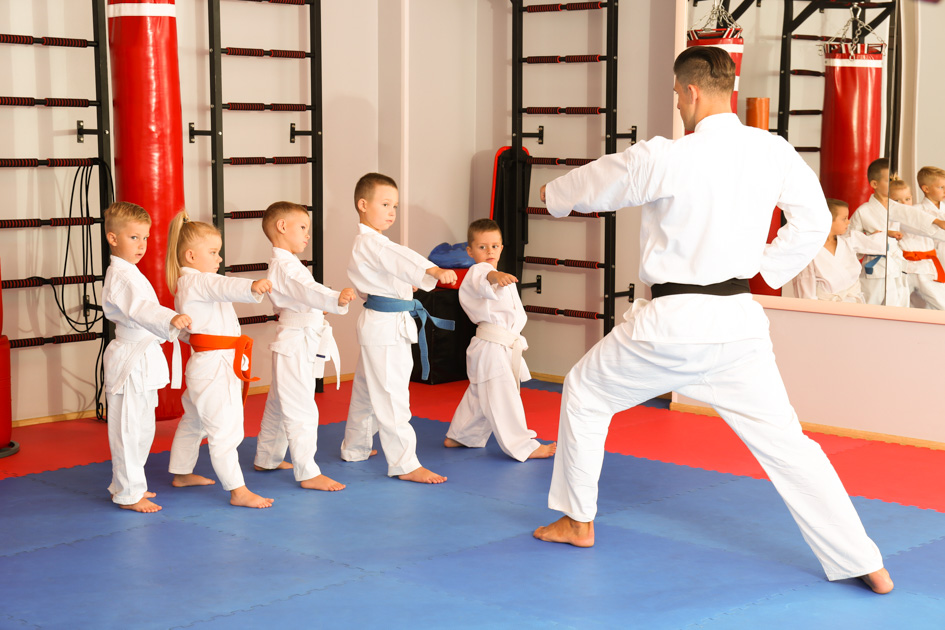
Childhood is one of the best times to start on the path toward self-respect, respect for others, respect for healthy authority figures, as well as physical health and emotional balance. Studying karate or other forms of martial arts offers young kids the chance to develop both physically and emotionally—at once allowing them to reach their peak potential.
There are numerous advantages to participating in Karate Classes for children. The main benefit is the lessons they absorb in training, including the ones that follow, are carried over into other areas of their lives, such as in the classroom, during extracurricular activities and even at home. Martial arts…
1. Teaches Self-Defense
Building reflexes to stand up to a threat is important for children. Learning self-defence manoeuvres is a key skill that is developed by learning karate or other martial arts. When children are confronted by bullies, the techniques they learn in karate give them the confidence to stand up for and defend themselves.
2. Builds Confidence
While defensive encounters take skill, having the confidence to stand up to trouble is invaluable, especially for those who are at a malleable age. In karate classes, instructors provide continual encouragement and feedback, which, in combination, builds students’ self-confidence levels as well as proper technique.
In martial arts programs, such as Tae Kwon Do, kids quickly learn that an opponent’s physical size matters less than mental hardiness. Small children’s confidence levels soar when they discover in their martial arts classes that solid technique can overcome an adversary who is twice as large or strong.
3. Hones Leadership Skills
Karate classes, especially, revolve around a ranking system, where higher belts equate to improved skill. As children progress and earn higher-level belts, they serve as leaders for lower-level students, often assisting with coaching and offering support. Self-leadership is a concurrent side benefit.
Leadership traits depend on both self-respect and respect for others. Both of these essential forms of respect are developed during the young martial arts students’ regular training. As class participants bow to their teachers or wait for instructor commands, respect for authority is instilled.
4. Develops Character
For kids to advance to the next ranks, they must prove their skills. Strengthening their competence takes perseverance. Wearing upper-level belts requires a demonstration of correct technique, which can only be achieved through consistent effort and dedication to the discipline.
Additionally, in the martial arts youth learn to set individual goals to work toward. Young participants in karate classes are keen on earning their belts, with the black belt, and subsequent degrees and instructor levels being the highest distinction. Students learn to prioritize activities to reach their intended goals, perhaps even surpassing them.
Resilience is also developed when children study martial arts. For example, young karate students who are confronted by bullies summon their learned resilience and coping mechanisms to handle the threat. Plus, the resilience they build transfers over to academic performance and social and emotional effectiveness.
5. Encourages Self-Discipline
In martial arts, the constant repetition of various moves is performed to achieve perfection in skill. Kids learn that the only way to progress in karate classes is to punch or kick using the correct technique—and feats like these are only achievable through self-disciplined practice.
Given that karate classes, unlike seasonal school sports, are available throughout the year, children have the chance to hone their skills through self-disciplined training all year long, and build a lifelong practice. With the consistency of karate lessons, kids who learn to become increasingly disciplined perfect their technique at a faster rate.
Martial arts is not a sport; rather, this style of the physical and mental challenge is a lifestyle, one that requires the full commitment of the fighter’s mind and body. As a result, the self-discipline developed in martial arts classes extends into other areas of the child’s life.
6. Promotes Healthy Body and Weight
Regular physical activity of any form helps children develop and maintain healthy body weight. One-hour long martial arts classes three times per week are sufficient to meet the World Health Organisation’s recommendations for physical activity.
Children who embrace martial arts learn to enrich their bodies with healthy foods and nutrients as well as the right amounts of physical activity. As these martial arts students grow into adulthood, their childhood karate lessons will have piqued their interest in maintaining a strong and fit lifestyle.

